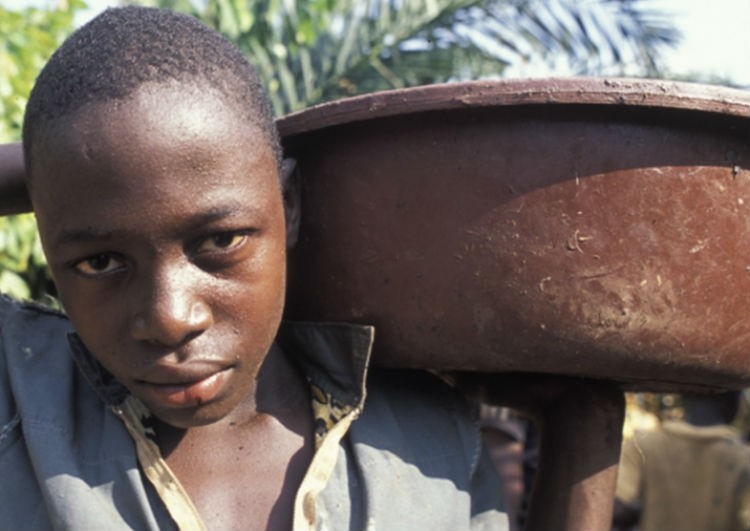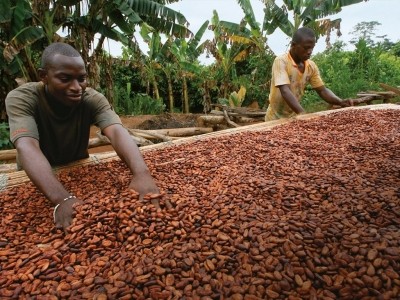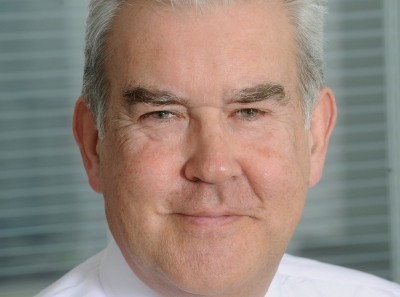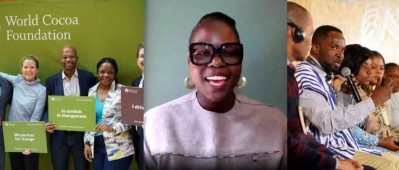WCFPM2022
Ending child labour in cocoa – ‘why aren’t we there yet’?

The tone of the two-day meeting was set by Martin Short, the new WCF President, who said in his opening speech to delegates: "We are all responsible and no one can plead ignorance or abdicate responsibility."
Aarti Kapoor, Executive Director of Embode, with more than 20 years of experience dedicated to human rights, picked up the debate by asking the question: Why aren't we there yet?
We can all agree that we're nowhere near where we should have been by now, in terms of eradicating child labour from the cocoa sector -- Aarti Kapoor, Executive Director of Embode
“We can all agree that we're nowhere near where we should have been by now, in terms of eradicating child labour from the cocoa sector, and cocoa supply chains. And this is causing ongoing consternation.”
In her opinion, the situation is “pretty grave” and she said there are two action points the industry needs to take:
“First of all, we need to step out and look at the global picture for a moment. According to UNICEF and ILO’s [International Labour Organisation] latest study, there are an estimated 8.5 million additional children in child labour since four years ago when the last study was conducted ....
“So what are the causes?
“The causes are increasing, poverty and increasing vulnerability and inadequate lack of social programmes and social safety nets."
Kapoor made the point that why do “we” (the cocoa industry) think that it is able to eradicate child labour from cocoa without actually looking at the wider picture in which child labour is taking place?
It’s not a problem that can be looked at in isolation to global problems, she said.
“We've been taking a cocoa-centric, cocoa supply chain-driven approach to child labour, but that's not going to solve the issue - because the issue requires a child-centred approach.
“From the point of view of a young boy or a young girl,” she said, “does it really make that much of a difference if you're working in a cotton field, on a cocoa farm in a factory or in domestic work ….
“Is the load any lighter if its water or if it's cocoa? The point is that from the perspective of a child, the world looks very different than when you're looking at cocoa crops in particular or another crop."
She said what is needed is for organisations to start looking at children and child wellbeing outcomes … what they actually need in order to reduce their risks of falling into child labour.
“So much of our time and energy and millions of dollars is spent on measuring incidences of child labour – it’s like trying to find a needle in a haystack, and then trying to remediate those cases.
“Why aren’t we spending our time, energy and money on measuring correlating indicators instead. For example, instead of trying to find children in child labour, we can count the number of children in school or those who have or don’t have access to basic amenities such as water, electricity, nutrition etc. Focusing on child wellbeing indicators such as these focuses on ensuring children are kept safe and away from risks of child labour and other harms."
Empowering communities
Pablo Perversi Chief Innovation, Sustainability & Quality Officer at Barry Callebaut, said that he is in support of empowering communities and the WCF has a vision of a thriving, sustainable cocoa sector, “where farmers prosper and communities are empowered and the planet is healthy. “
Perversi told delegates there are lots of ideas, opinions and work underway particularly around children working on farms in unsafe conditions or in child labour.
But he cautioned, that while there is lot of commitment and effort in this area from various stakeholders … "I can safely speak for all of us that not enough has been done - and we are all frustrated by the progress that we see.”
He said that frustration is not only confined to the cocoa supply chain, but in other areas, and as such the United Nations has deemed 2021 as the International Year for the Elimination of Child Labour.
Perversi said he became a ‘champion’ of the cause earlier this year because of his personal and professional passion for sustainability.
“We agreed on a number of principles as champions to guide our work together to create an understanding and consensus with a much broader and engaging focus on root causes [of child labour].”
Kim Frankovich, VP Cocoa Sustainability Mars Wrigley, is also a WCF Champion, and said the intent isto ensure that this generation and future generations are not talking about how we end child labour in the cocoa supply chain.
Can All Cocoa Farmers Earn a Living Income?
The session was followed by another that looks at farmer poverty and is often attributed to the main cause of child labour in the cocoa industry.
In a video, Ghana cocoa farmer Stephen Ashia, told the WCF: “Farmers do not have a say in the pricing of cocoa in Ghana – the price is determined by the cocoa board – and the price they receive is not enough to meet their needs. Cocoa is an expensive crop to grow, if a farmer earns a higher price for his cocoa, it will solve some of their need and help them improve living standards.”
Poverty is also one of the most pressing and complex sustainability issues affecting cocoa communities. The WCF session presented new research and heard from a multitude of voices on the emerging concept that only some farmers can earn a living income from cocoa due to limitations in farm size, soil condition, and ability to invest.
How can we best implement change? It should not be about going for the early wins and ignoring the hard work -- Antonie Fountain, Managing Director, Voice Network
To support the cocoa farmers on their journey, the panel was moderated by Cathy Pieters, Senior Director Sustainable Ingredients, Mondelez International, who said the industry needs to accelerate its efforts in helping farmers earn a decent income.
Yuca Waarts, Senior Researcher, Wageningen University & Research said: “Its decade-long research on farmer income reveals that a third of farmers cannot achieve a living income from cocoa due to various reasons including small farms producing low volumes.
“Farmers can’t afford to invest to achieve high yields, prices are unstable, and there is a tendency for oversupply. There are few other options to create income from other sources.”
She urged all stakeholders to work together to address the income challenge, and said farmers are still under presented in talks.
Anna Laven, Senior Advisor, Researcher, KIT Associate at Rokit Science, said “a segmentation approach” is needed and there is no one size fits all to living income as variables include household size/composition, marital status and access to finance.
Antonie Fountain, Managing Director of the influential Voice Network that publishes the Cocoa Barometer Report, said he welcomes the data and research from various sources because when he started looking at the issue of poverty in the cocoa industry none existed.
“It’s easier to navigate waters with increasingly accurate maps,” he said.
“How can we best implement change? It should not be about going for the early wins and ignoring the hard work. Business thinking can get in the way of human rights thinking. How can we ensure that those who need help most, the most poor, are not going to be left behind?"
He said female-led households struggle most, and there must be more gender equality, which is a role not only for the industry but for governments to tackle.
In regards of pricing and remunerating farmers, the industry needs to know more about how the market works and that companies must take more responsibility without hiding behind the market to make sure farmers are paid enough, he told the WCF Partnership Meeting.









